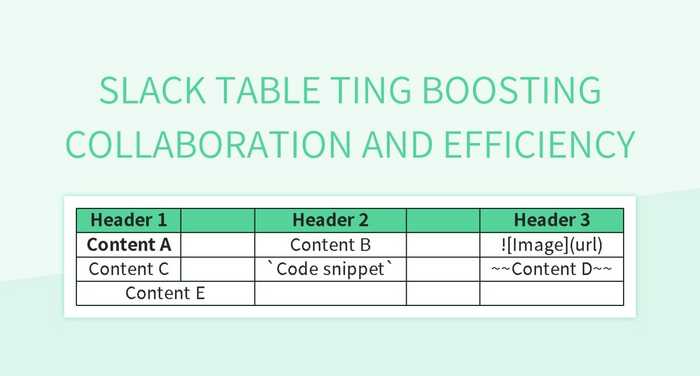Boosting Collaboration: Bangladesh's Return To The European Market

Table of Contents
Renewed Focus on Sustainable and Ethical Sourcing
Regaining the trust of European consumers is paramount for Bangladesh's success in the European market. This requires a renewed focus on sustainable and ethical sourcing practices. Addressing past concerns about labor practices and environmental impact is crucial for long-term success in this competitive market.
Addressing past concerns:
To rebuild trust, Bangladesh must demonstrate a clear commitment to ethical production. This involves:
- Implementation of stricter labor laws and monitoring systems: Independent monitoring bodies and robust enforcement mechanisms are needed to ensure compliance with international labor standards. This includes fair wages, safe working conditions, and the prohibition of child labor. Strengthening labor inspections and providing worker protection are key.
- Investment in green technologies and sustainable manufacturing processes: Adopting eco-friendly practices throughout the supply chain, from raw material sourcing to waste management, is crucial. This includes reducing water consumption, minimizing pollution, and using sustainable materials. Investing in renewable energy sources will also improve the environmental footprint of Bangladeshi businesses.
- Active engagement with ethical sourcing initiatives like the Better Work program: Participating in and adhering to the standards of reputable ethical sourcing initiatives provides transparency and builds confidence with European buyers. This demonstrates a commitment to continuous improvement.
- Transparency and traceability in supply chains: Implementing robust traceability systems allows European buyers to track products from origin to delivery, ensuring ethical and sustainable practices are followed at every stage. Blockchain technology could play a crucial role here.
Showcasing Bangladesh's strengths:
While addressing past concerns is vital, Bangladesh also needs to highlight its strengths in the European market. The country possesses a competitive advantage in several sectors:
- Investment in R&D to improve product quality and design: Focusing on innovation and improving product quality will enhance competitiveness and attract discerning European buyers.
- Development of specialized niche markets within the European Union: Identifying and targeting specific niche markets within the EU, where Bangladesh possesses a unique competitive advantage, can yield significant returns.
- Emphasis on sustainable materials and production methods: Highlighting the use of sustainable materials and eco-friendly production processes will appeal to the growing number of environmentally conscious consumers in Europe.
- Promoting the skills and craftsmanship of Bangladeshi artisans: Showcasing the unique skills and craftsmanship of Bangladeshi artisans can create a distinct brand identity and attract premium buyers seeking high-quality, handcrafted products.
Strengthening Trade Agreements and Partnerships
Strengthening trade agreements and fostering robust business-to-business collaborations are vital for boosting the Bangladesh European market.
Leveraging existing agreements:
Bangladesh should fully utilize existing trade agreements and actively seek new opportunities for preferential access to the European market. This includes:
- Strengthening relationships with the European Union through diplomatic channels: Maintaining open communication and fostering strong diplomatic ties is crucial for resolving trade disputes and negotiating favorable trade agreements.
- Actively participating in trade fairs and exhibitions in Europe: Participating in major trade fairs and exhibitions provides direct access to potential European buyers and investors.
- Negotiating bilateral trade agreements to reduce tariffs and non-tariff barriers: Reducing tariffs and non-tariff barriers will make Bangladeshi products more competitive in the European market.
Facilitating business-to-business collaborations:
Creating effective platforms for connecting Bangladeshi businesses with European counterparts is key:
- Organizing trade missions and business delegations: Facilitating trade missions and business delegations allows for direct engagement and relationship building between businesses.
- Developing online platforms and digital marketplaces for business networking: Establishing online platforms and digital marketplaces will improve access to international buyers and streamline the business networking process.
- Providing support and resources to Bangladeshi businesses to participate in international trade: Government support and resources are crucial to helping Bangladeshi businesses navigate the complexities of international trade.
Investing in Infrastructure and Skill Development
Improvements in infrastructure and skills development are crucial for enhancing Bangladesh's competitiveness in the European market.
Improving infrastructure:
Efficient infrastructure is essential for streamlining the export process and reducing costs:
- Improving port facilities and reducing port congestion: Modernizing port facilities and reducing congestion will significantly improve the efficiency of exporting goods.
- Investing in reliable and efficient transportation networks: Investing in reliable road, rail, and air transport networks is essential for efficient logistics.
- Developing advanced communication and digital infrastructure: A robust digital infrastructure is necessary to facilitate efficient communication and business transactions.
Upgrading skills and training:
Investing in skills development will ensure Bangladeshi workers meet European standards:
- Investing in vocational training programs focused on relevant industries: Providing specialized training in relevant industries will ensure workers possess the skills demanded by European buyers.
- Providing scholarships and training opportunities for workers to upgrade skills: Offering scholarships and training opportunities will help workers acquire the necessary skills for higher-paying jobs.
- Collaborating with European institutions on skill development initiatives: Partnering with European institutions will provide access to best practices and enhance the quality of training programs.
Conclusion:
Bangladesh's return to the European market holds immense potential for economic growth and mutual benefit. By prioritizing sustainable practices, strengthening trade partnerships, and investing in infrastructure and skill development, Bangladesh can significantly boost its export capacity and forge stronger collaborative ties with European businesses. The future of the Bangladesh European market hinges on continued commitment to ethical sourcing, innovation, and effective collaboration. Let's work together to cultivate a thriving and sustainable Bangladesh European market relationship. By focusing on these key areas, Bangladesh can unlock the full potential of this crucial market and build a brighter future for its economy.

Featured Posts
-
 Sean Penn Casts Doubt On Woody Allens Alleged Abuse Of Dylan Farrow
May 24, 2025
Sean Penn Casts Doubt On Woody Allens Alleged Abuse Of Dylan Farrow
May 24, 2025 -
 The Nfls Tush Push A Controversial Celebration Survives
May 24, 2025
The Nfls Tush Push A Controversial Celebration Survives
May 24, 2025 -
 University Of Maryland Commencement A Celebrated Amphibian To Speak
May 24, 2025
University Of Maryland Commencement A Celebrated Amphibian To Speak
May 24, 2025 -
 Finding Your Perfect Country Escape A Practical Guide
May 24, 2025
Finding Your Perfect Country Escape A Practical Guide
May 24, 2025 -
 Aleksandrova Proshla Samsonovu V Shtutgarte
May 24, 2025
Aleksandrova Proshla Samsonovu V Shtutgarte
May 24, 2025
